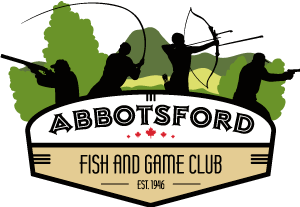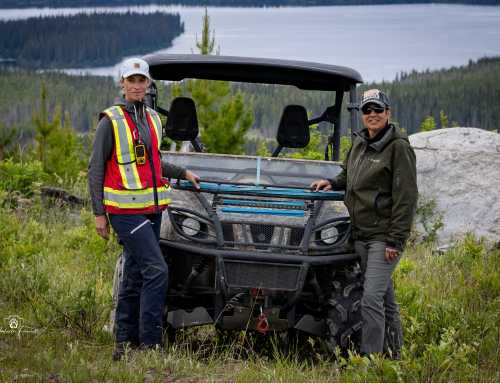Abbotsford Fish & Game Club supporting Fraser River Test & Remove Project
The Wild Sheep Society of British Columbia (WSSBC) has partnered with the Abbotsford Fish & Game Club (the Club) in support of the Fraser River Test and Remove Project. Through the Clubs contributions of over $57,500 since 2021, we have made a direct impact towards the progress in battling the respiratory disease ‘Mycoplasma Ovipneumoniae (M.ovi)’ that is affecting the California Bighorn Sheep in the Fraser River basin.

The project area which the Club is making a direct impact on was at one time home to 60% of Canada’s California Bighorn Sheep population. Many of the herds in the Fraser River metapopulation have declined since the 1990’s. Some herds have been hit drastically, and there are many that have never recovered successfully. Respiratory diseases like M.ovi following contact with domestic sheep is suspected to be behind these significant population declines.

The objectives of the multi-year project are to:
- Determine the prevalence of M.ovi within the interconnected bands of bighorn sheep along the Fraser River corridor.
- Assess the degree of connectedness among M.ovi positive bands of sheep through GPS collar locations.
- Prioritize herds for recovery based on M.ovi prevalence, connectedness, lamb recruitment, and known domestic sheep farming within herd ranges.
- Implement a selective removal recovery strategy to remove ewes that are shedding M.ovi. The goal of this recovery strategy is to:
- Stop M.ovi transmission to lambs.
- Prevent M.ovi transmission to adjacent herds.
- Improve lamb recruitment and recover population.
- Monitor effectiveness of selective removal treatments by conducting fall and spring lamb aerial counts (population demographics and recruitment) and recapturing lambs and yearlings in treatment bands the year following selective removal treatments to test for the presence of M.ovi (nasal swabs) and M.ovi antibodies (blood serum).

New science and detection techniques have been used to determine the prevalence of M.ovi in the Fraser River herds. The Fraser River Disease and Health Assessment Project has led to the development of baseline data on herd health, and improved management based on a more complete understanding of movements and connectivity among herds is what the project strives for. WSSBC feels that this is one of the most important projects we are currently undertaking, which will ultimately drive management actions needed for the recovery of this significant metapopulation of California Bighorns. We have captured and tested over 250 sheep to date (Table 1) with 40 positively tested specimen removed from the ecosystem.

In the spring of 2024, the Fraser River ecosystem will be flown, and a lamb recruitment survey will be completed. We have noted excellent lamb recruitment in every year of treatment, and we expect that this ecosystem wide survey will show excellent increased in Bighorn Populations across the Fraser Basin. We will provide our funding partners these recruitment numbers once they are available. For 2024, we have budgeted $175,100 (see Table 3) which will be used for capturing and collaring this winter. The original plan was to use a bait, and capture approach utilizing a drop-net WSSBC purchased last year. Due to the early spring conditions, the Bighorn Sheep have not come down from higher elevations to feed as they normally would in normal conditions. We will be changing our tactics of this capture, by involving a helicopter and net-gun capture approach. We plan on executing this in late February, or early March 2024.

The WSSBC has already committed over $230,000+ to support the capture and collaring work, as well as mortality site investigations for this project. Successful Provincial grant applications from the Province of BC, and financial partnerships with wild sheep advocates like the Wild Sheep Foundation, Wild Sheep Foundation Mid-West Chapter, and Dallas Safari Club, have led to contributions over $700,000+ to this project. Having the Club as a partner in our success is an amazing testament to its’ members forward looking conservation focused mindset.
Yours in Conservation,
Korey Green, President
Kyle Stelter, Chief Executive Officer
Chris Barker, Vice-President
Wild Sheep Society of BC



A great project in the preservation of our sheep populations, good work.